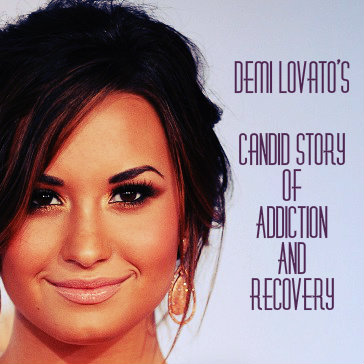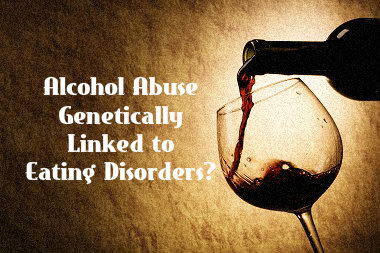If you are overweight or obese you may wonder why you can’t seem to control your weight. Other people seemingly resist the urge to overeat and manage to get out and get exercise to stay at a healthy weight. Why can’t you? Is it a simple matter of willpower, or is there something else going on? The concept of addiction has been applied to food and obesity. Learn more about addiction to find out if your behaviors toward food may resemble those of an addict. And if they do, you can get help.
What Characterizes An Addiction?
 Addiction is a complicated issue and experts have debated its definition for years. Traditionally, addiction has referred only to substances, like drugs and alcohol. These substances change the brain in ways that makes it very difficult to stop using them. Characteristics of addiction include intense craving for the substance, a loss of control when using it, and the inability to stop using even in the face of negative consequences.
Addiction is a complicated issue and experts have debated its definition for years. Traditionally, addiction has referred only to substances, like drugs and alcohol. These substances change the brain in ways that makes it very difficult to stop using them. Characteristics of addiction include intense craving for the substance, a loss of control when using it, and the inability to stop using even in the face of negative consequences.
More recently, many experts have felt that it was important to include behaviors and activities in the category of addiction. These types of addictions are called process or behavioral addictions and remain distinct from chemical addictions. Some of the behavioral addictions that get the most attention include gambling addiction, sex addiction, and compulsive shopping. Any behavior or action has the potential to become a process addiction for any person. This includes eating.
What Are Addictive Behaviors?
What chemical and process addictions have in common are the behaviors exhibited by the addicted person. For instance, someone who is an alcoholic feels an overwhelming urge to drink and be drunk nearly all the time. He also loses control when drinking. He may start out one evening with a plan to have just two drinks, but end up having 10 instead. He also continues to drink in spite of the harm it is causing to his health, his relationships and his work.
If you have a process addiction you may express similar behaviors. For instance, compulsive gamblers are always drawn to gamble, whether in casinos, online or at the track. They lose control and gamble too much money. In spite of the huge losses they experience, they cannot stop gambling. The behaviors of the alcoholic and the compulsive gambler are very similar.
Do I Have A Food Addiction?
For many addiction experts, food addiction is a real problem. Consider the three characteristics of addiction: do you feel a strong and constant pull to eat? When you eat do you often lose control and eat too much in one sitting? Do you continue to eat too much even though you know that it is harming your health and that you should lose weight? If you can answer yes to these you may have a process addiction.
To know for sure just how serious your addictive behaviors are you should seek an expert opinion. There is no absolute standard for diagnosing a food addiction, but a counselor experienced in helping people with process addictions can recognize the signs in your behaviors. A therapist can also determine if your issue is a food addiction or an eating disorder.
How Can I Get Help For A Food Addiction?
There are many counselors and therapists available who understand process addictions and who are experienced in helping people like you. A trained therapist can help you understand why you overeat and can help you make constructive changes in your life. If you are unsure where to turn to find someone, see your doctors for resources. You will never regret getting help and getting your life and your health back on track.
Read More How Much Can Diet And Exercise Really Help In Recovery?
13 Jan 2014
Demi Lovato’s Battle With Addiction And Mental Illness – How Her Candid Story Can Help Teens
Actress and singer Demi Lovato has made a name for herself starring in television shows like The X-Factor and Sonny With A Chance. However, recently the 21-year-old star has been promoting her new memoir, Staying Strong: 365 Days a Year. The book details the young celebrity’s battles with several mental health conditions, including a drug addiction, eating disorder and alcohol abuse.
Lovato’s Personal Struggles
In her memoir and through a series of interviews, Lovato revealed her disorders as well as her triumphs. They include the following:
 Drug addiction – The star has recounted how, during the peak of her addiction, she snorted cocaine practically every 30-60 minutes.
Drug addiction – The star has recounted how, during the peak of her addiction, she snorted cocaine practically every 30-60 minutes.- Alcohol abuse – Lovato reports that by age 19 her alcohol abuse was serious enough that she was drinking a soda bottle filled with vodka in the morning.
- Cutting – She’s spoken openly about her struggle with self-mutilation, which began at the tender age of 11. Lovato says she made cuts on her wrists to cope with negative emotions.
- Eating disorder – The young celebrity recalls how she first battled an eating disorder around age 12 or 13, although she began to worry about her body image earlier. This was triggered by becoming the target of bullies who cruelly labeled her as “fat.” Over the years, her self-destructive behaviors included compulsive overeating as well as anorexia and bulimia.
- Bipolar disorder – Lovato recounts how, initially, manic periods made her a productive songwriter. However, the cycles of mania and depression also made it painfully difficult for her to control her emotions.
By age 19, these conditions had taken a serious toll on Lovato’s well-being. She reports having a nervous breakdown during a concert tour. At one point, she reportedly physically struck one of her back-up dancers. That’s when her family and management team did the intervention that compelled her to quit the tour and enter into treatment. Lovato initially received three months of inpatient treatment, and then continued her treatment in an outpatient program. It was only after treatment started that she was diagnosed with bipolar disorder [1-5].
Co-Occurring Disorder – Not Unique
Mental health disorders often co-occur, creating havoc in the lives of young individuals and their families. While the scope of Lovato’s conditions may seem sensational – alcohol, drugs, cutting, depression, and mania – the reality is that some teen girls and young women deal with these challenging disorders on a daily basis.
Anorexia nervosa affects up to 3.5% of women during their lifetime, while bulimia afflicts approximately 4% of females. Over 85% of those with eating disorders report first experiencing symptoms before the age 20 [6]. Teens and young women may restrict eating habits or binge and purge for a variety of reasons, from the desire to have the “perfect” body to the need to conform to athletic standards. The impact of an eating disorder on physical and emotional health is profound. These conditions have the highest mortality rate of any mental health disorder. For example, 20% of individuals with anorexia will die early from complications such as suicide or heart problems [6].
Other psychiatric conditions, like those Lovato struggled with, also have a negative effect on adolescent girls and young women, too. Research reviews suggest that patients with bipolar disorder have higher rates of bulimia. The opposite is true as well, with bulimic patients showing elevated rates of bipolar disorder [7]. Likewise, researchers have connected eating disorders with self-injury behaviors, such as cutting. In one study, 40% of adolescents with an eating disorder engaged in some type of self-injury. Those who practiced binging and purging, in particular, were more likely to self-harm than those who restricted food intake [8].
It’s also common for young people with mental health conditions to wrestle with substance abuse, just as Lovato did. A teenager or young adult overwhelmed by negative emotions may turn to substances to self-medicate their symptoms. For instance, bipolar disorder so frequently co-occurs with drug or alcohol abuse that some experts suggest that all young people with the condition should be assessed for substance abuse [9].
Lovato’s Encouraging Turn-Around
Lovato says she’s been open about her struggles because she wants other young girls to know their lives don’t need to be destroyed by addiction and mental health issues. In addition to talking with media outlets and writing a book, Lovato has also become a contributing editor to Seventeen magazine, with a focus on addressing eating disorders and the pressure teen girls often feel to be perfect [10]. Earlier this year, she also joined the Substance Abuse and Mental Health Services Administration (SAMHSA) to promote National Children’s Mental Health Awareness Day.
The popular young star’s efforts may serve to increase awareness of these issues among teen girls and young women. For example, they may help remove some of the stigma linked to conditions like depression or bipolar disorder, making it a little easier for someone to admit she needs help. Lovato’s openness may also teach some to recognize potential mental health disorders, including substance abuse, in their friends.
Additionally, her story may spark conversation about how the drive for physical perfection affects young women. Mass media and social networks have the power to convey unrealistic expectations about appearance. For example, the recent “thigh gap” trend has raised concerns because it may be causing some teens and young women to engage in unhealthy eating behaviors. They strive to become thin enough to create a noticeable space between their upper thighs. Lovato’s struggles with her own body image and the serious impact it’s had on her well-being may help some young people re-examine how they feel about their own bodies.
Reaching Out For Mental Health And Addiction Help And Healing
If you are a young woman dealing with mental health challenges, such as depression or self-harm, or a substance abuse problem – of if you know someone who is – contact a treatment center. The staff will help you determine appropriate treatment options. In addition, you’ll learn more about the intervention process and how it works to guide a person into treatment. Reach out for help today.
Read More About News In Celebrity Addiction
Resources:
[1] http://www.accesshollywood.com/demi-lovato-reveals-i-would-smuggle-cocaine-on-planes-exclusive_article_87694?l=OrMCe04Lcp0lOAfwFxnxvTU9tcbLHGqa8dh4YNgqILhpcs3rrYzNyvjFFpL2UWFdmIyLovYOHoUw9OHNN-yfr-hT3QzJwxXaiY0E6jGOmKBd9kI-phnp10szTd5p31H3oLl4-d20JIUZB21TTGT0B8HYTWG85jaN3LpDOgDuYyeE_Ucklv4NTCPit-xOC3I
[2] http://www.foxnews.com/entertainment/2013/12/10/demi-lovato-couldnt-go-without-cocaine-for-30-minutes-to-hour/
[3] http://abcnews.go.com/Entertainment/demi-lovato-interview-teen-star-opens-bulimia-cutting/story?id=13405090
[4] http://www.people.com/people/article/0,,20483380,00.html
[5] http://www.cnn.com/2011/SHOWBIZ/celebrity.news.gossip/01/28/demi.lovato.treatment/index.html
[6] http://www.anad.org/get-information/about-eating-disorders/eating-disorders-statistics/
[7] http://www.ncbi.nlm.nih.gov/pubmed/15935230
[8] http://www.sciencedirect.com/science/article/pii/S1054139X10003095
[9] http://psychcentral.com/lib/substance-abuse-and-bipolar-disorder/0001033
[10] http://www.seventeen.com/health/tips/demi-lovato-hub
A study has concluded that for some having an eating disorder could also mean an increased risk for alcohol abuse. The reverse is also true, that certain people with alcohol dependency may face higher chances of developing certain kinds of eating disorders.
 For their study, researchers at the Washington University Medical School in St. Louis took a look at close to 6,000 fraternal and identical twins over age 18. Mental health practitioners and other experts have been aware for some time of a comorbidity between alcohol abuse and eating disorders in women, but this new study indicates that the link holds true for some men as well. The research has tended to focus on women since they’re most often the victims of disordered eating, but men suffer these illnesses as well, including binge eating.
For their study, researchers at the Washington University Medical School in St. Louis took a look at close to 6,000 fraternal and identical twins over age 18. Mental health practitioners and other experts have been aware for some time of a comorbidity between alcohol abuse and eating disorders in women, but this new study indicates that the link holds true for some men as well. The research has tended to focus on women since they’re most often the victims of disordered eating, but men suffer these illnesses as well, including binge eating.
Binge Eating
Binge eating occurs when a person consumes an overabundance of food in a single sitting. This overeating is often done in secret and is followed by feelings of guilt, shame and being out of control. It’s frequently accompanied by purging wherein the person compensates for the large food intake by either causing themselves to vomit or misuse laxatives or diuretics. Experts refer to behaviors like purging as compensatory behaviors. The researchers did not ask men about purging behaviors such as diuretic and laxative abuse, but instead relied upon data from prior male studies. They did ask the women in the study about any potential purging behaviors. Compensatory behaviors like purging are considered closely connected to alcohol abuse behaviors.
Similarities
Following the interviews, statistical methods were employed to calculate estimates for both the influence of environment and the influence of genes. Both eating disorders and alcohol dependency are thought to be a result of a mix of environmental and genetic causes. The statistical method carefully separated the two in order to gauge genetic impact alone. What they found was that the same genes were implicated in both alcohol dependency and binge eating disorders.
Around six percent of the females in the study had problems with alcohol dependency at one time or another during their life. Thirteen percent of them also struggled with binge eating and 14 percent of them also engaged in purging behaviors. More men (25 percent) reported alcohol dependency at some point and 11 percent of them had also engaged in binge eating.
This means that there was a .26 overall statistical correlation between binge eating and alcohol dependency (zero equals no genes in common and one equals every gene in common). For women the correlation was .32. The study team concluded that some of the very same genes which affect alcohol dependency also impact binge eating for both men and women along with compensatory behaviors (purging) in women.
Treatment
There is increased awareness of eating disorders in today’s culture, but diagnoses of anorexia nervosa and bulimia nervosa (a binge and purge eating disorder) continue to be relatively infrequent. When men or women are diagnosed and admitted into treatment, there is rarely any examination into alcohol abuse issues as part of recovery therapy.
Likewise, when men or women enter into alcohol treatment, it is uncommon for staff to inquire or investigate any potential eating disorders. The Washington University study suggests that, given the genetic link between these two illnesses, recovery strategies should target both kinds of compensatory behavior.
The study is scheduled for publication in the September volume of the Journal of Studies on Alcohol and Drugs.


